Opening Ceremony will honor newly elected 2021 class of Fellows of the AACR Academy
//
Estimated Read Time:
The American Association for Cancer Research will honor the 2021 class of Fellows of the AACR Academy during the AACR Annual Meeting 2021 Opening Ceremony on Sunday, April 11.
“This year, we are thrilled to announce the election of 25 new Fellows of the AACR Academy. These individuals from across the globe have all made remarkable and crucial contributions to cancer research,” said Margaret Foti, PhD, MD (hc), chief executive officer of the AACR. “The 2021 class consists of luminaries representing numerous scientific disciplines, whose work has significantly accelerated the pace of progress against various malignancies. We are honored to have them join our 231 existing Fellows and look forward to celebrating their unique scientific achievements.”
Notably, the AACR Academy includes 55 Nobel laureates. All Fellows of the AACR Academy are nominated and elected through a rigorous assessment of each candidate’s scientific accomplishments in cancer research and cancer-related sciences. Only individuals whose work has had a significant and enduring impact on cancer research are considered for election and induction into the AACR Academy.
Members of the 2021 class of Fellows of the AACR Academy are:
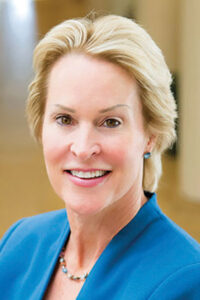
Frances H. Arnold, PhD
Linus Pauling Professor of Chemical Engineering, Bioengineering, and Biochemistry; Director, Donna and Benjamin M. Rosen Bioengineering Center, California Institute of Technology, Pasadena, CA
Scientific Areas of Expertise: Biocatalysis; Biotechnology; Protein Engineering
For her Nobel Prize-winning contributions to pioneering directed evolution to generate enzymes that display improved and novel functions, and for highlighting how to harness such technologies to produce pharmaceutical compounds, chemicals, and renewable fuels more sustainably.
[gap height=”10″]

Allan Balmain, PhD, FRSE, FRS
Barbara Bass Bakar Distinguished Professorship in Cancer Genetics, Helen Diller Family Comprehensive Cancer Center, University of California, San Francisco, CA
Scientific Areas of Expertise: Cancer Genetics; Chemical Carcinogenesis; Systems and Computational Biology
For defining the first molecular link between cancer initiation and chemical carcinogen exposure; for his pioneering use of mouse models to elucidate how genes and the environment interact to drive multistep carcinogenesis; and for harnessing such models to recapitulate genetic heterogeneity in human populations to better inform precision medicine and diagnostic approaches to treatment.
[gap height=”10″]
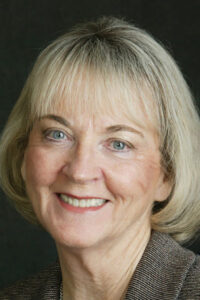
Anna D. Barker, PhD
Chief Strategy Officer, Lawrence J. Ellison Institute for Transformative Medicine, University of Southern California, Los Angeles, CA
Scientific Areas of Expertise: Cancer Innovation; Precision and Transformative Medicine; Systems Science
For her enormous and highly impactful contributions to building many of the essential elements of cancer precision medicine including serving as co-founder of The Cancer Genome Atlas, whereby she played a critical role in the design, initiation, and establishment of the program, heralded for the molecular characterization of over 20,000 biospecimens spanning 33 tumor types, including 10 rare cancers; for her innovative and unwavering scientific foresight, leadership, and success in establishing the NCI Alliance for Nanotechnology in Cancer, the Clinical Proteomics Technologies Initiative for Cancer, and the Cancer Human Biobank and Cancer Bioinformatics Grid; and for her decades-long pioneering contributions to convergence and complex systems science and the Physical Sciences-Oncology Centers.
[gap height=”10″]
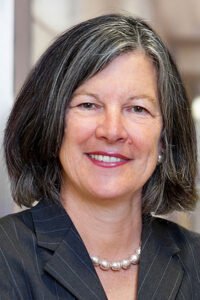
Mary C. Beckerle, PhD
Chief Executive Officer, Huntsman Cancer Institute; Jon M. Huntsman Presidential Endowed Chair; Associate Vice President for Cancer Affairs, University of Utah; Distinguished Professor of Biology and Oncological Sciences, University of Utah, Salt Lake City, UT
Scientific Areas of Expertise: Actin Cytoskeletal Function and Dynamics; Cancer Cell Biology and Metastasis; Mechanical Stress Responses
For instrumental research aimed at defining novel molecular pathways responsible for regulating cellular migration, invasion, and metastasis, including her discovery of proteins that orchestrate actin-cytoskeleton and cell-substratum adhesion dynamics as well as others that signal from the cell surface to the nucleus to facilitate the invasion and metastatic spread of primary cancers, namely, Ewing sarcoma.
[gap height=”10″]
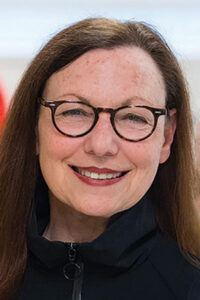
Shelley L. Berger, PhD
Daniel S. Och University Professor, Department of Cell and Developmental Biology and Department of Genetics, Perelman School of Medicine, Department of Biology, School of Arts and Sciences, University of Pennsylvania, Philadelphia, PA
Scientific Areas of Expertise: Epigenetics; Gene Regulation, p53 Biology
For her illuminating contributions to the fields of chromatin biology, epigenetics, and transcriptional regulation, including the demonstration of novel chromatin-specific mechanisms that influence the progression of tumors with gain-of-function p53 mutations and for identifying numerous enzymes responsible for post-translational histone modification, providing important mechanistic insights into the importance of epigenetic events in tumor initiation and progression.
[gap height=”10″]
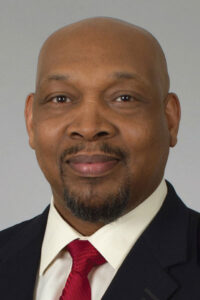
John D. Carpten, PhD
Professor and Chair, Department of Translational Genomics; Royce & Mary Trotter Chair in Cancer Research, Keck School of Medicine of the University of Southern California, Los Angeles, CA
Scientific Areas of Expertise: Cancer Disparities; Cell and Tumor Biology; Genetic Risk and Functional Genomics; Precision Oncology
For world-renowned contributions to the understanding of the role of biology in cancer disparities observed in underrepresented populations, significant research contributions to the field of precision cancer medicine centered on high-throughput genomic approaches, and for his seminal characterization of the role of HOXB13 and AKT1 genomic alterations in human cancers.
[gap height=”10″]
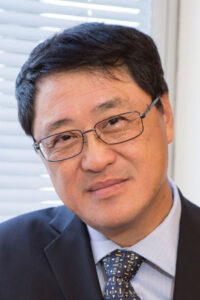
Lieping Chen, MD, PhD
United Technologies Corporation Professor in Cancer Research, Professor of Immunobiology, of Dermatology and of Medicine (Medical Oncology); Co-Leader, Cancer Immunology Program, Yale Cancer Center, Yale University School of Medicine, New Haven, CT
Scientific Areas of Expertise: Cancer Biology; Cancer Immunotherapy; T Cell Activation and Tolerance
For his unrivaled leadership in the field of PD-L1 biology, including his fundamental research that led to the cloning of B7-H1(PD-L1), subsequent demonstration of the immunosuppressive functions of the B7-H1/PD-1 signaling pathway, the use of antibody blockade of this pathway as a cancer immunotherapy, and his pivotal discovery of costimulation as a mechanism to improve tumor immunity, which has since led to the development of breakthrough treatments for human cancer.
[gap height=”10″]
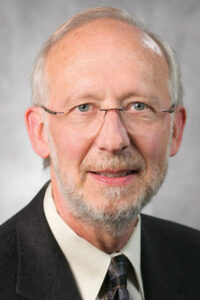
Don W. Cleveland, PhD
Member, Ludwig Institute for Cancer Research and Professor of Medicine, Neurosciences, and Cellular and Molecular Medicine, University of California, San Diego, La Jolla, CA
Scientific Areas of Expertise: Centromere Identity; Chromothripsis; Genome Evolution in Cancer
For his celebrated discovery of the revolutionary DNA-based drug treatment ASO (antisense oligonucleotide), and for pioneering research contributions to defining the molecular mechanisms responsible for governing chromosomal movement, cell cycle control, centromere identity, and genome evolution in cancer.
[gap height=”10″]
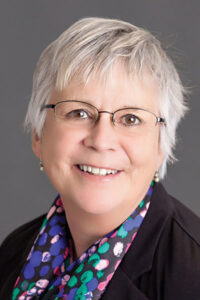
Sara A. Courtneidge, PhD
Professor, Departments of Cell, Developmental & Cancer Biology, and Biomedical Engineering, Oregon Health & Science University, Portland, OR
Scientific Areas of Expertise: Cancer Cell Biology; Invasion and Metastasis; Protein Kinases
For renowned contributions to the understanding of oncogenic transformation including discovering that RSV v-Src transforming protein and c-Src are plasma membrane-associated, defining the activation mechanism of the c-Src tyrosine kinase; discovering that c-Src is involved in polyomavirus transformation, which revolutionized the DNA tumor virus field; and identifying Tks4 and Tks5 adaptor proteins as Src substrates that trigger invadopodia formation and protease secretion essential for tumor cell invasion.
[gap height=”10″]
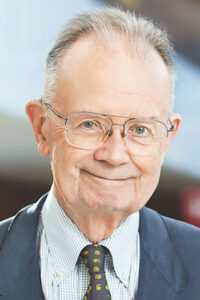
Albert de la Chapelle, MD, PhD
Distinguished University Professor, Department of Cancer Biology and Genetics, The Ohio State University, Columbus, OH
Scientific Areas of Expertise: Cancer Biology; Chromosomal Abnormalities; Genetics
For internationally lauded contributions to the field of genetics, including the identification of chromosome 8 trisomy in select acute myeloid leukemia patients, mapping the glutathione reductase gene to this extra chromosome, and for additional research endeavors dedicated to the genetic characterization of leukemia, papillary thyroid cancer, colorectal cancer, and Lynch syndrome.
[gap height=”10″]
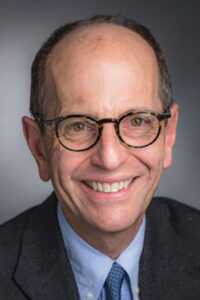
George D. Demetri, MD
Director, Center for Sarcoma and Bone Oncology; Senior Vice President for Experimental Therapeutics; Quick Family Chair in Medical Oncology, Dana-Farber Cancer Institute; Professor of Medicine, Harvard Medical School; Co-director, Ludwig Center at Harvard University, Boston, MA
Scientific Areas of Expertise: Developmental Therapeutics; Precision Oncology; Sarcoma
For central contributions to the development of novel treatments and personalized cancer care regimens for sarcoma patients, which have led to FDA and worldwide regulatory approval of various targeted therapies, including imatinib, pazopanib, and sunitinib, medications that have significantly altered the standard of care for sarcoma patients and those affected by gastrointestinal stromal tumors.
[gap height=”10″]
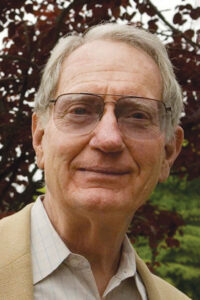
Philip C. Hanawalt, PhD
Dr. Morris Herzstein Professor in Biology, Emeritus, Stanford University, Stanford, CA
Scientific Areas of Expertise: DNA Damage and Repair; DNA Replication; Transcription
For unparalleled contributions to establishing the DNA damage repair field, highlighted by his co-discovery of DNA excision repair and preferential repair of transcribed genes, the latter of which demonstrated intragenomic DNA repair heterogeneity and the determination that actively expressed genes are repaired through a special transcription-coupled repair pathway; and for developing several experimental approaches to studying DNA repair, including the commonly used Bromodeoxyuridine (BrdU) labeling method for detecting newly synthesized DNA.
[gap height=”10″]
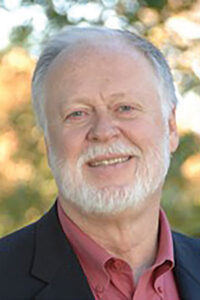
Curtis C. Harris, MD
Chief, Laboratory of Human Carcinogenesis; Head, Molecular Genetics and Carcinogenesis Section, Center for Cancer Research, National Cancer Institute, Bethesda, MD
Scientific Areas of Expertise: Cancer Biomarkers; Cancer Risk Assessment; Epidemiology
For essential contributions to cancer risk assessment and epidemiology, and identification of cancer biomarkers; for defining the environmental and molecular drivers of carcinogenesis, including linking aflatoxin B1 exposure to increased hepatocellular carcinoma risk in individuals who express particular p53 tumor suppressor mutations; and for demonstrating that childhood secondhand smoke exposure directly correlates with an increased risk of lung cancer in adult nonsmokers, specifically those harboring MBL2 mutations.
[gap height=”10″]
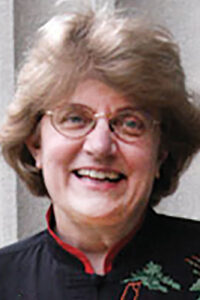
Nancy H. Hopkins, PhD
Amgen Inc. Professor of Biology Emerita, Massachusetts Institute of Technology, Cambridge, MA
Scientific Areas of Expertise: Cancer Genetics; Molecular Biology; Virology
For groundbreaking research involving murine RNA tumor viruses and for contributing to the establishment of zebrafish as an essential disease model by developing a method of insertional mutagenesis and conducting a large-scale insertional mutagenesis screen, which led to the identification and cloning of 25 percent of genes essential for the early development of the fertilized egg and identification of genes that predispose adult fish to cancer.
[gap height=”10″]
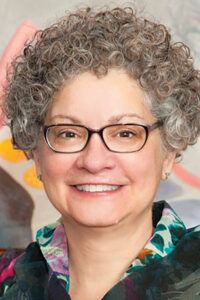
Guillermina Lozano, PhD
Professor and Chair, Department of Genetics, University of Texas MD Anderson Cancer Center, Houston, TX
Scientific Areas of Expertise: Anti-Cancer Therapies; Genetic Models of Cancer; p53 Tumor Suppressor Pathway
For establishing that p53 contains a transactivation domain, in turn defining the protein as a transcription factor; for showing the potent effects of Mdm2 and Mdm4 in p53 inhibition; for dissecting p53-mediated cell cycle arrest and senescence activities as tumor suppressive mechanisms; for exploring its physiologic significance in potential anticancer therapies; and for showing gain-of-function properties of missense p53 mutants resulting in the functional inactivation of p63 and p73.
[gap height=”10″]
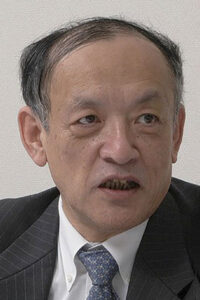
Shigekazu Nagata, PhD
Distinguished Professor, Immunology Frontier Research Center, Osaka University, Osaka, Japan
Scientific Areas of Expertise: Cell Death Mechanisms; Cytokine-mediated Signal Transduction; Flippases and Scramblases
For fundamental work dedicated to categorizing crucial steps required for cellular apoptosis, namely, the identification of the Fas membrane protein as a member of the tumor necrosis factor receptor family, and for defining the role of the Fas ligand as an inducer of apoptotic signaling, a finding that would result in the further characterization of this signaling pathway as an essential pathway for immune system regulation and tumorigenesis.
[gap height=”10″]
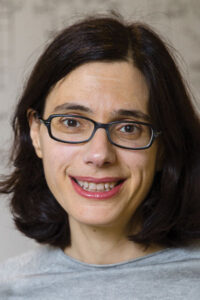
Aviv Regev, PhD
Executive Vice President, Genentech Research and Early Development, South San Francisco, CA
Scientific Areas of Expertise: Biological Circuits; Computational Biology; Genomics
For expertly developing and applying sophisticated computational modeling techniques and algorithms to understand molecular circuits and predict cellular behavior in response to genetic and environmental changes, cellular differentiation, evolution, and disease, and for developing microfluidic and other technologies for high throughput, single-cell genetic screening technologies.
[gap height=”10″]
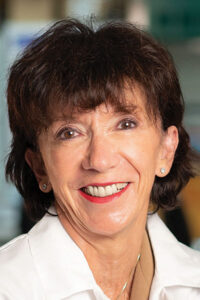
Martine F. Roussel, PhD
Professor and Member; Endowed Chair in Molecular Oncogenesis, St. Jude Children’s Research Hospital, Memphis, TN
Scientific Areas of Expertise: Epigenetic Regulators in Medulloblastoma; Pediatric Brain Tumors; Pre-clinical Trials in Medulloblastoma and Atypical Teratoid Rhabdoid Tumors
For pivotal contributions to the understanding of childhood brain cancers, especially medulloblastoma, specifically highlighting how developmental pathways and cell cycle regulatory proteins, including cyclin dependent kinases and those encoded by the Ink4a/ARF locus, are capable of regulating central nervous system function and brain tumor initiation and progression.
[gap height=”10″]
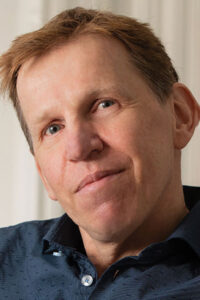
Ton N. Schumacher, PhD
Principal Investigator, The Netherlands Cancer Institute, Oncode Institute, Amsterdam, Netherlands
Scientific Areas of Expertise: Adaptive Immunity; Cancer Immunology; Cancer Immunotherapy
For vast contributions to characterizing antitumor immunity, defining how immune cells identify and target tumor-specific neoantigens, and for pioneering technologies that allow for high-throughput analysis of immune cell reactivity to cancer neoantigens, which have effectively transformed clinical approaches to precision immunotherapeutic treatment strategies.
[gap height=”10″]
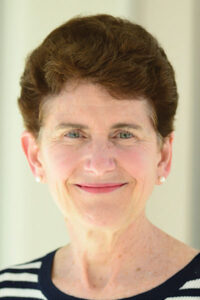
M. Celeste Simon, PhD
Arthur H. Rubenstein, MBBCh, Professor, Cell and Developmental Biology; Scientific Director, Abramson Family Cancer Research Institute; Associate Director, Abramson Cancer Center Core Facilities, University of Pennsylvania Perelman School of Medicine, Philadelphia, PA
Scientific Areas of Expertise: Metabolism; Stress Responses; Tumor Microenvironment
For enriching contributions to the understanding of cellular, tissue, and organismal responses to changes in oxygen availability, including the characterization of PU.1 as an essential component of hematopoietic cell development, and for defining how oxygen gradients may regulate hematopoiesis, angiogenesis, cardiovascular development, stem cell function, and tumor development via HIF-1 and other oxygen sensors.
[gap height=”10″]
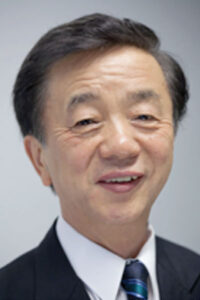
Tadatsugu Taniguchi, PhD
Professor Emeritus, The University of Tokyo, Tokyo, Japan
Scientific Areas of Expertise: Immune System Signaling and Transcription; Inflammatory Diseases; Tumor Immunology
For isolating and characterizing genes involved in mediating immune responses, including interferon-beta and interleukin-2, and for his discovery of the interferon regulatory family of transcription factors, which has resulted in improved understanding of the interplay between innate and adaptive immune responses, as well as the molecular mechanisms by which gene expression changes and signal transduction impacts immune system function, cancer initiation, and progression.
[gap height=”10″]
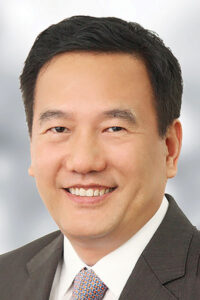
Xiaodong Wang, PhD
Director and Investigator, National Institute of Biological Sciences, Beijing, China
Scientific Areas of Expertise: Cell and Molecular Biology; Cell Death Mechanisms; Cytochrome C
For seminal contributions to the understanding and study of apoptosis, including the characterization of cytochrome c as an essential component of cellular apoptotic machinery, and for subsequent studies dedicated to defining the molecular components of the apoptosome, including Apaf-1, Bid, and Smac.
[gap height=”10″]
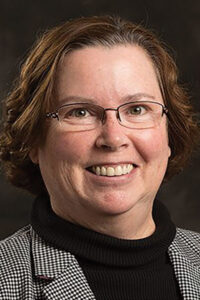
Eileen P. White, PhD
Deputy Director, Chief Scientific Officer, and Associate Director for Basic Research, Rutgers Cancer Institute of New Jersey; Distinguished Professor, Molecular Biology and Biochemistry, Rutgers, The State University of New Jersey, New Brunswick, NJ
Scientific Areas of Expertise: Apoptosis; Autophagy; Cancer Metabolism
For key contributions to the understanding of oncogenic activation and the role of apoptotic inhibition in promoting cancer and treatment resistance, for discovering BCL-2 oncogene homologues, and for defining the role of autophagy in promoting cellular homeostasis and facilitating cancer metabolism and tumorigenesis.
[gap height=”10″]
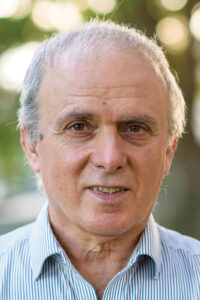
Yosef Yarden, PhD
Professor, Department of Biological Regulation, Weizmann Institute of Science, Rehovot, Israel
Scientific Areas of Expertise: Cancer Progression; Receptor Tyrosine Kinases; Signal Transduction
For groundbreaking research that revealed the biochemical mechanisms responsible for the development and growth of cancer cells, including the role of growth factor receptors and cellular signaling, and for discovering the function of HER2 as a molecular amplifier of tumorigenesis.
[gap height=”10″]
“The Fellows of the AACR Academy assist the AACR in many different areas, mainly in identifying scientific priorities for the AACR that will contribute to the AACR’s programs and activities and thereby drive future progress in cancer research,” said Michael J. Powell, PhD, deputy director, scientific programs for the AACR. “The Fellows have and continue to help us navigate the ever-evolving cancer research landscape to ensure that the AACR remains at the forefront of progress in cancer research.”
The AACR Academy also communicates directly with government leaders and their staff about important research and/or cancer-related topics, taking part in congressional briefings or in select cases, writing letters on behalf of the AACR Academy to policymakers. The Fellows of the AACR Academy also advocate for increased federal funding for cancer research and cancer-related science. Fellows of the AACR Academy are also charged with:
- participating in special meetings to discuss how to accelerate advances in cancer research;
- mentoring the next generation of cancer scientists working in all research settings;
- assisting the AACR in educating the public about cancer, the importance of the AACR, and the value of cancer research to public health and the conquest of cancer.


